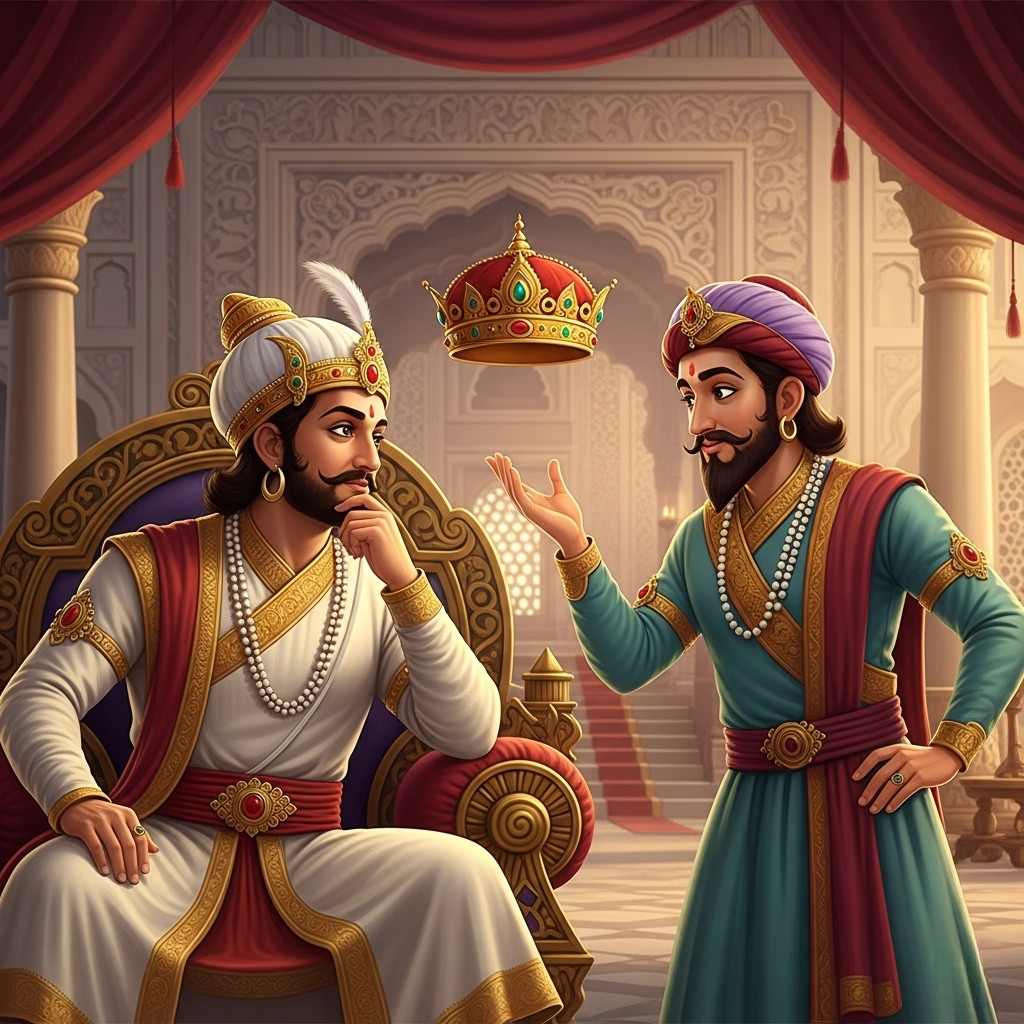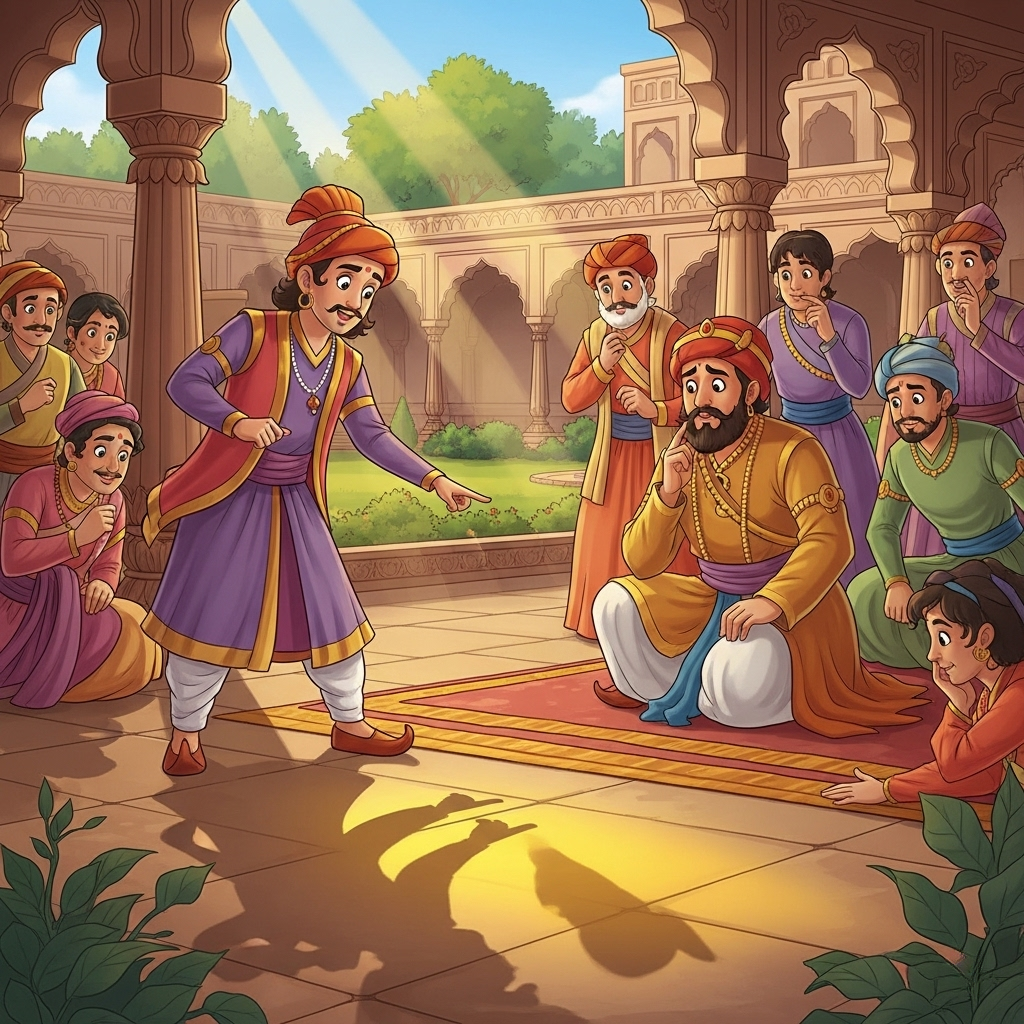
The Shared Crown

One evening, Emperor Akbar was engaged in a thoughtful discussion with his courtiers about leadership and power. Curious, he turned to Birbal with a question.
“Birbal,” he said, “if two rulers were to share one throne, how would we know who truly leads?”
The courtiers murmured among themselves. Some said they could lead together through cooperation, while others argued that conflict would be inevitable.
Birbal said nothing that moment, but promised to answer the question the next day.
The following morning, Birbal entered the court holding a curious object a puppet with two heads, each facing opposite directions. He placed it on a platform and began a demonstration. The two heads of the puppet began to argue, tugging and pulling in different ways. As they continued their quarrel, the puppet lost balance and toppled over.
The court watched in silence.
Birbal turned to Akbar and said, “When two minds try to lead in opposite directions, the result is confusion. This puppet represents a divided rule where both leaders want control, but unity is lost. The throne is not meant to be tugged from two sides. It must move forward with clarity and purpose.”
Akbar nodded, impressed. “Well shown, Birbal. A crown shared without harmony leads only to collapse.”
The courtiers understood the lesson: leadership cannot succeed without unity and clear direction.
Moral: When leadership is divided, progress is lost. True leadership requires unity of vision and direction.


